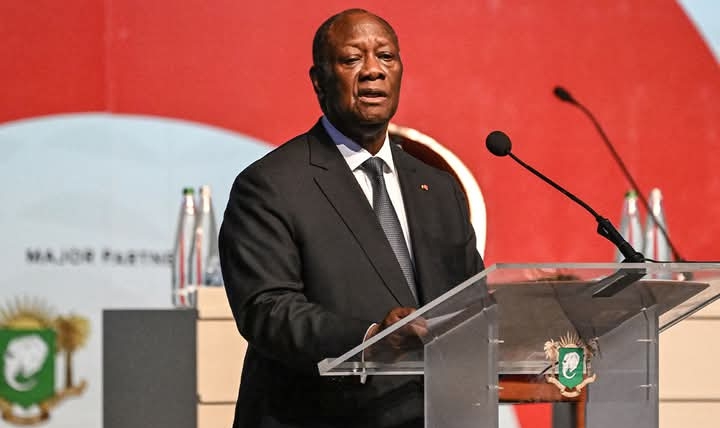In a move signaling a dawn of an era in West Africa’s military landscape, Ivory Coast President Alassane Ouattara has announced the withdrawal of French forces from the country this January.
Delivering his end-of-year address on Tuesday, Ouattara highlighted the modernization of Ivory Coast’s army as a key factor in the decision.
“This is a proud moment for our nation,” Ouattara said. “The modernization of our army is now effective, and in this context, we have decided on the concerted and organized withdrawal of French forces.” The announcement marks yet another step in the weakening of military ties between France and its former colonies in West Africa.
The move follows a series of similar actions across the region. In recent years, French forces have been ousted from Mali, Burkina Faso, and Niger, driven by growing anti-French sentiment and the rise of military-led governments. This pattern reflects a broader regional desire to assert sovereignty and redefine post-colonial relationships.
November 2024 saw Chad and Senegal join the list of nations distancing themselves from French military presence. Senegalese President Bassirou Diomaye Faye, in his own New Year’s address, set a clear timeline for foreign military withdrawals, stating that all foreign troops would leave Senegal by 2025.
“I have instructed the minister for the armed forces to propose a new doctrine for cooperation in defense and security, which includes the end of all foreign military presences,” Faye declared.
For years, France has framed its troop withdrawals as part of a broader “reorganization” of its military presence in Africa. However, the departures are increasingly seen as reflective of strained relationships between France and its former colonies. Rising anti-French sentiment, fueled by accusations of neocolonialism and perceived interference in domestic affairs, has eroded goodwill toward France’s military interventions.
The forced withdrawal of French troops from Mali, Burkina Faso, and Niger in recent years underscored this growing hostility. Military-led governments in these nations, often critical of French policies, have sought alternative security arrangements, including partnerships with nations like Russia.
For years, Ivory Coast served as a stable hub for French military operations in the region. The country hosts one of France’s largest military bases in Africa, a strategic outpost that supported counterterrorism efforts across the Sahel. However, Ouattara’s announcement reflects a new chapter for the country. By emphasizing the strength and modernization of Ivory Coast’s own armed forces, the president signaled a readiness to take greater responsibility for national and regional security.
The withdrawal of French troops aligns with a broader trend of African nations reevaluating their defense strategies and seeking greater autonomy.
The withdrawal of French forces from Ivory Coast and other West African nations raises questions about the future of security in a region grappling with complex challenges. The Sahel region, in particular, continues to face threats from extremist groups such as Boko Haram and al-Qaeda affiliates.
France’s military presence has long been a cornerstone of counterterrorism efforts in the region. While some leaders argue that French forces have failed to deliver sustainable security, others worry that their departure could create a power vacuum, leaving nations vulnerable to insurgencies. Regional bodies like the Economic Community of West African States (ECOWAS) may need to step up their security efforts to fill the gap left by France’s withdrawal.
Now nations like Ivory Coast will likely focus on strengthening their own military capabilities and fostering regional cooperation.
The departure of French troops from Ivory Coast is more than just a military decision; it’s a turning point in Franco-African relations. For decades, France’s military presence in Africa has been a symbol of its enduring influence in the region. However, the growing wave of troop withdrawals underscores a shifting dynamic.
As African nations assert their sovereignty and reevaluate their relationships with former colonial powers, France faces the challenge of redefining its role on the continent. Whether this will lead to more balanced partnerships or further estrangement remains to be seen.
President Ouattara’s decision to end French military presence in Ivory Coast marks a bold step toward greater autonomy and self-reliance. It reflects a broader regional trend of African nations reclaiming their sovereignty and rethinking their defense strategies. While the withdrawal raises questions about regional security and the future of Franco-African relations, it also presents an opportunity for West Africa to chart its own course. As the region navigates this new era, the emphasis will likely shift toward collaboration, innovation, and the strengthening of local institutions to address the challenges ahead.




